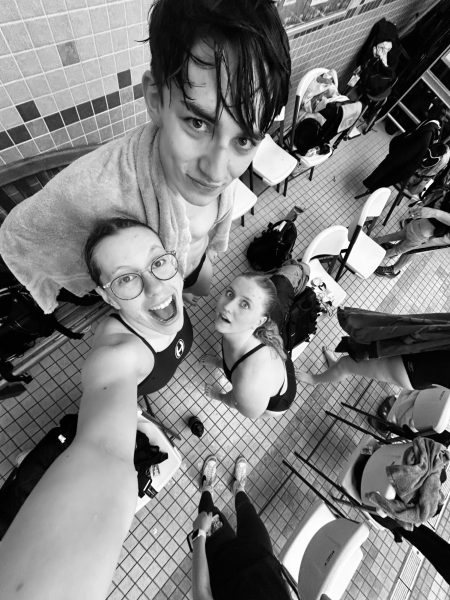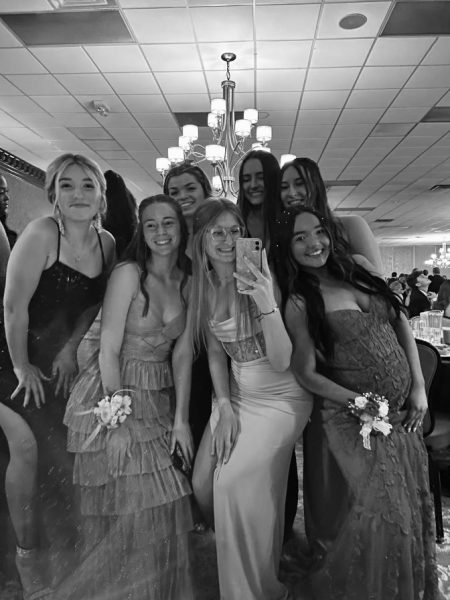Golden Globe Awards Show Overwhelming Support for Victims of Sexual Assault and Harassment
Two words defined 2017: Me too. Likewise, two words began 2018: Time’s up. Popularized by tweets concerning the controversy surrounding the 2018 Golden Globe Awards, #timesup is the next step in the #metoo movement, broadening the original crusade’s reach as well as its initial mission.
“Time’s Up is a unified call for change from women in entertainment for women everywhere,” the official Time’s Up Now website states. “Powered by women, Time’s Up addresses the systematic inequality and injustice in the workplace and beyond that have kept underrepresented groups from reaching their full potential.”
At the recent Golden Globes, airing on Jan. 7, the guests in attendance seemed to hold similar values, with most wearing black to show support to every man, woman or person who has experienced any form of sexual assault or abuse. Similarly, eight well-known celebrity women, including Emma Watson, Meryl Streep, Amy Poehler and Emma Stone, brought gender and racial justice activists as their guests to the show. In addition to these forms of protest and solidarity, many award winners also spoke out against the controversy in Hollywood.
In his opening monologue, host Seth Meyers made absolutely certain to not ignore or downplay the major issues surrounding the awards show, beginning with a satirical greeting:
“Good evening ladies and remaining gentlemen,” joked Meyers.
The show quickly transitioned from its satirical and semi-humorous tone to an increasingly more serious and passionate one, beginning with actress Nicole Kidman’s moving acceptance speech for Best Actress. She spoke of her mother, a women’s rights supporter and activist, and praised her—along with all other women—for her bravery and tenacity.
“Wow. The power of women,” stated Kidman.
Continuing, during the first commercial break, The New York Times aired their powerful, yet beautifully simple advertisement urging for the truth above all else.
The commercial opened with four black words prominently contrasted against a white background: “He said. She said.” The pattern repeated until, ultimately, the “She said” far outnumbered its counterpart, symbolizing all of the women who spoke their truth.
The commercial finished with three powerful statements: “The truth has power. The truth will not be threatened. The truth has a voice.”
Yet, the most memorable and moving speech came from Oprah Winfrey, the winner of the Cecil B. DeMille Award. She began with an inspirational message for the youth of society, reassuring them that change will come, and it will come soon.
“I want all the girls watching to know that a new day is on the horizon. And when that new day finally dawns, it will be because of magnificent women and men fighting hard right now,” she stated.
But, although she often spoke about racial injustice and gender inequality, her main focus was the topic of sexual assault and abuse. She explained the 1940’s story of Recy Taylor, a young Alabamian, African American woman who was kidnapped and raped by six white men. The accused never faced any punishment.
“Recy Taylor lived as we all have lived: Too many years in a culture broken by brutally powerful men. For too long, women have not been heard or believed if they dare speak the truth to the power of those men. But their time is up. Their time is up.”
As the Time’s Up Now mission states: “No more silence. No more waiting. No more tolerance for discrimination, harassment or abuse. Time’s up.”

